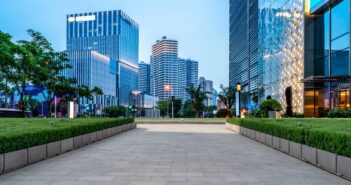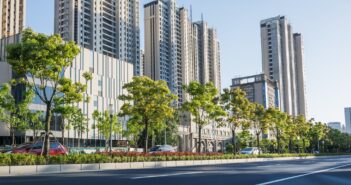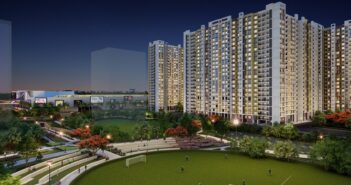
LTCG advocacy adds insult to injury of home buyers
If the removal of indexation benefits with Long Term Capital…

If the removal of indexation benefits with Long Term Capital…

The surge in demand for luxury housing has been primarily driven by a growing preference by affluent buyers seeking enhanced amenities and more spacious living areas that complement their multifaceted lifestyle. Additionally, the aspirational class has been on an upward trend, significantly driving luxury sales. Furthermore, the rise in NRI and astute investors in the Indian real estate market has considerably contributed to the heightened demand for luxury properties.

DLF has emerged as the top real estate company in the 2024 GROHE-Hurun India Real Estate 100, with a valuation of INR 2,02,140 crore. Following DLF, Macrotech Developers holds the second position with a valuation of INR 1,36,730 crore, and Indian Hotels Company ranks third with INR 79,150 crore. Among the top 10 companies, 60% are headquartered in Mumbai, while two are based in Bengaluru and one each in Gurugram and Ahmedabad.

With a wealth of INR 1,24,420 crore, Rajiv Singh from DLF leads the 2024 GROHE-Hurun India Real Estate Rich, followed by Mangal Prabhat Lodha from Macrotech Developers with INR 91,700 crore at the second spot, and Gautam Adani & family from the Adani Realty with INR 56,500 crore at third. Of the top 10 on the real estate rich list, five are from Bengaluru and four from Mumbai.

Between April and June 2024, residential supply witnessed the highest growth rate in the last 24 months, driven by the increasing availability of under-construction properties, shared the recently published PropIndex Report (April-June 2024) by Magicbricks, India’s leading real estate platform. According to the report, the supply of under-construction properties has increased by 11.7% QoQ, while prices have risen by 15.2% QoQ between April-June 2024. This surge has resulted in prices of under-construction properties surpassing those of ready-to-move properties in several cities such as Gurugram, Mumbai, Noida and Thane.

According to the report’s findings, Q1 2024 marked a discernible shift towards high-end properties among homebuyers. Notably, the share of properties priced at INR 1 crore and above in sales surged to 37%, a significant increase from the pre-pandemic levels of 2019, more than doubling in magnitude. During this period, there was substantial growth (50-55%) in demand observed within the INR 1-5 crore price bracket, closely followed by the INR 5-10 crore range, particularly evident in cities like Mumbai, Gurugram, and Bengaluru. This transition signifies a departure from purely budget-driven decisions towards properties that better resonate with buyers’ lifestyle preferences.

Continuing its upward trajectory, India’s top eight primary residential markets witnessed a strong demand during January-March (Q1 2024) this year with sales rising by 68 per cent in value terms to nearly Rs 1.11 lakh crore, according to a report by PropTiger.com.

The Securities Exchange Board of India (SEBI) has introduced amendments to the REIT Regulations 2014, which outlines provisions for the formation of Small and Medium Real Estate Investment Trusts (SM REITs). With this the built environment of the Indian real estate has gone euphoric with the underlying promise to witness windfall into fractional ownership. It is perceived to be more lucrative than the existing REITs since the SM REITs encompasses both commercial and residential properties under the guidelines. A Track2Realty report.

The surge in spiritual tourism can be attributed to enhanced infrastructure, including well-connected roads, airports, and public transportation, as well as the development of various accommodation options such as hotels, guesthouses, and wellness centres. To meet the growing demand for spiritual travel, local governments and businesses are joining forces to create unique retail experiences. This includes integrating local practices into the design and offerings of shops, restaurants, and hotels. Cities like Amritsar, Varanasi, Madurai, Puri, Guruvayur, etc. are leveraging their unique culinary traditions and local fashion expertise to further attract and engage visitors.

The report highlights a continued uptrend in aggregate demand across the top 13 cities between January and March 2024, registering a robust growth of 6.9% QoQ. Moreover, after a period of relatively subdued supply, there has been a modest 0.9% QoQ increase this quarter. Despite this, the demand continues to outstrip supply, resulting in a 2.9% QoQ increase in residential prices across these 13 cities. Noida (7.4% QoQ), Greater Noida (7.2% QoQ), and Chennai (5.5% QoQ) recorded the highest appreciation in property prices.
